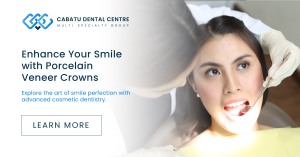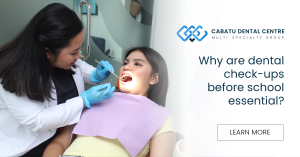Here are some helpful tips and insights to help you.
Navigating Life with Braces:
- Initial Discomfort: When you first get braces, you may experience some discomfort or soreness. This is normal as your mouth adjusts to the new appliances. Over-the-counter pain relief like ibuprofen and a soft diet can help.
- Dietary Adjustments:
- Avoid Sticky and Hard Foods: These can damage your braces. This includes things like gum, caramel, and hard candies.
- Cut Up Hard Foods: If you want to eat something like an apple, cut it into small, bite-sized pieces.
- Soft Diet: Initially, you may prefer softer foods like pasta, yogurt, and soups.
- Oral Hygiene: It’s crucial to maintain good oral hygiene to prevent issues like cavities and gum disease.
- Specialized Tools: You may need to use tools like a proxabrush, floss threader, and fluoride rinse to clean effectively.
- Regular Check-ups: Attend all your orthodontic appointments for adjustments and check-ups.
- Brace-Friendly Habits:
- Avoid Chewing on Objects: This includes things like pens and pencils, which can damage your braces.
- No Nail Biting or Thumb Sucking: These habits can put pressure on your braces and teeth.
- Managing Discomfort:
- Orthodontic Wax: This can be used to cover any sharp edges on your braces that might irritate your mouth.
- Saltwater Rinse: If you experience sores, rinsing with warm saltwater can help.
- Sports and Activities:
- Mouthguard: If you play sports, you should wear a mouthguard to protect your braces and teeth
- Mouthguard: If you play sports, you should wear a mouthguard to protect your braces and teeth
- Speech Adjustments: It might take a little time to adjust to speaking with braces. Practice speaking slowly and clearly.
- Regular Orthodontist Visits:
- Adjustments: You’ll need to visit your orthodontist for adjustments, which help to gradually shift your teeth into the desired position.
- Adjustments: You’ll need to visit your orthodontist for adjustments, which help to gradually shift your teeth into the desired position.
- Patience and Persistence:
- Remember It’s Temporary: While it may feel like a long time, having braces is a temporary phase in your life that will lead to a better smile.
- Remember It’s Temporary: While it may feel like a long time, having braces is a temporary phase in your life that will lead to a better smile.
- Celebrate Progress:
- Document Changes: Take pictures to track your progress. It can be really motivating to see how your smile is improving.
- Document Changes: Take pictures to track your progress. It can be really motivating to see how your smile is improving.
- Embrace Your Braces:
- Decorate Them: If you’re feeling creative, consider using colored bands to personalize your braces.

Taking Care of your Braces
Proper care for your braces is crucial to ensure they work effectively and to maintain good oral health. Here are some specific care tips for braces:
- Regular Cleaning:
- Brushing: Use a soft-bristle toothbrush and fluoride toothpaste. Angle the brush at a 45-degree angle towards the gum line and make sure to brush around all the wires and brackets. Brush both the outside and inside surfaces of your teeth.
- Interdental Brushes: These can be very helpful in cleaning between wires and brackets.
- Flossing: A floss threader or special floss designed for braces can be used to get in between the wires and teeth.
- Rinse Your Mouth:
- After brushing and flossing, use an antimicrobial mouthwash to help kill bacteria and reduce plaque.
- Avoid Certain Foods:
- Sticky Foods: Avoid things like chewing gum, caramel, and toffee.
- Hard Foods: Steer clear of hard candies, nuts, and ice cubes.
- Chewy Foods: Foods like bagels and hard rolls can be challenging to eat.
- Orthodontic Wax:
- Keep orthodontic wax on hand to apply to any areas where your braces are causing irritation. This can provide temporary relief.
- Regular Dental Check-ups:
- Continue with your regular dental check-ups in addition to your orthodontic appointments. Your dentist will ensure that your teeth and gums are healthy throughout the braces process.
- Follow Orthodontist’s Instructions:
- Listen to your orthodontist’s advice and follow any specific care instructions they provide.
- Emergency Kit:
- Have an emergency kit with items like orthodontic wax, a small mirror, and a dental pick. This can be especially useful if you’re traveling.
- Wear Elastics as Directed:
- If your orthodontist prescribes rubber bands (elastics) to correct your bite, make sure to wear them as instructed.
- Protect Your Braces During Physical Activities:
- If you play sports, especially contact sports, wear a mouthguard to protect your braces and teeth.
- Stay Hydrated:
- Drink plenty of water, especially after meals. This can help flush out food particles that may be stuck in your braces.
- Avoid Bad Habits:
- Don’t chew on pens, pencils, or ice. These habits can damage your braces.
- Report Problems Early:
- If something feels loose or broken, contact your orthodontist right away.
- If something feels loose or broken, contact your orthodontist right away.
Remember, you’re not alone in this experience. Many people go through it, and it’s all part of the process to achieve a healthier and more confident smile. If you ever have concerns or questions, don’t hesitate to reach out to your orthodontist. They are there to help you through this journey.
Call us for an appointment
+63 2 8925 6518
+63 908 883 0620
We have dental offices in Centuria Medical Makati and in The Capital Towers, Quezon City.
Sharing is Caring!🥰
Share this article to your family and friends. They’ll thank you for it!








